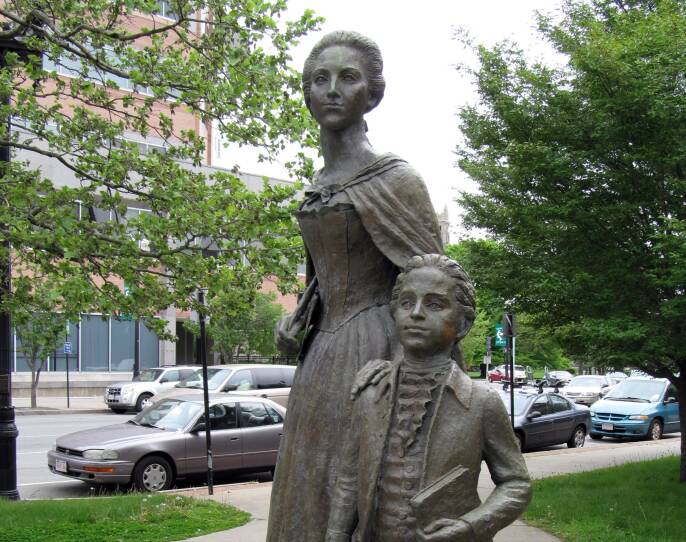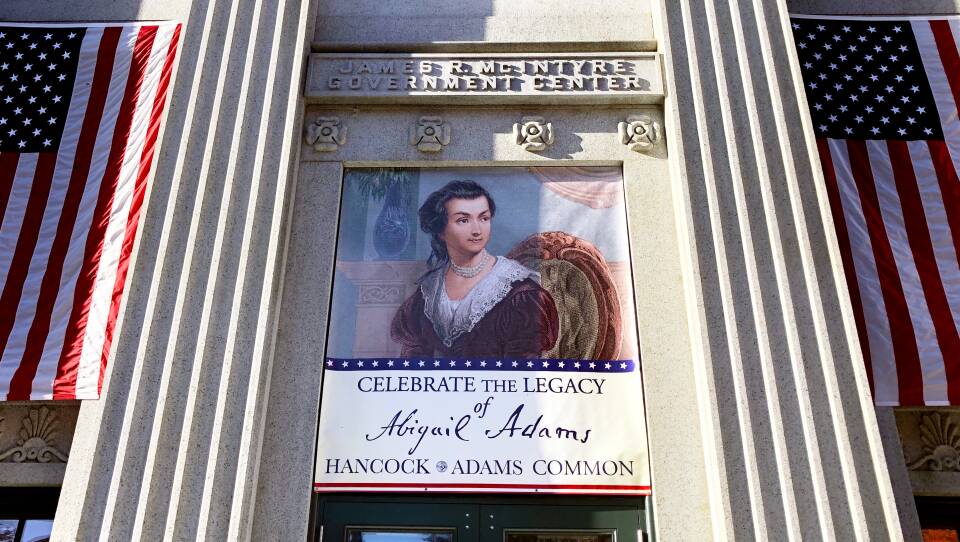Abigail Adams — the second First Lady of the United States, when John Adams was president, and the mother of the sixth president, John Quincy Adams — is finally getting her due in Quincy on Saturday, when a 7-foot tall bronze statue will be unveiled on Hancock-Adams Common.
“It’s an opportunity to get some recognition for a founding mother,” said Alexandra Elliott, the curator at Quincy Historical Society. “There were a lot of very significant women participating in the Revolution at varying levels — Abigail, of course, probably being the most well known of all of them.”
For much of her adult life, Adams lived in what is now Quincy with her husband, President John Adams. Her statue joins similar ones of John Hancock and John Adams that went up in 2018, according to Quincy Mayor Tom Koch.
“I think the statue is long overdue,” Koch said. “But I also think it’s important for young girls and the young girls in school that they see somebody so important and historical that they can look up to and grow to appreciate her story as well and connect with.”

Both Koch and Elliot pointed to Adams’ early and staunch support of women’s rights, and her opposition to slavery, passionately pushing for the education of people of all genders and races.
An older statue of Adams with a young John Quincy Adams used to be located near the Hancock-Adams Common, but was moved in 2018 when the Common was being reconfigured. It’s now located in Quincy’s Merrymount Park.
Flanking her new statue are two of her fiery, most famous quotes inscribed in stone. In one, she writes to her husband on March 31, 1776, in the months before he would help fashion the Declaration of Independence.
“In the new Code of Laws which I suppose it will be necessary for you to make I desire you would Remember the Ladies, and be more generous and favorable to them than your ancestors,” she wrote, in part. “Remember all Men would be tyrants if they could. If particular care and attention is not paid to the Ladies we are determined to foment a Rebellion, and will not hold ourselves bound by any Laws in which we have no voice, or Representation.”
Adams’ anti-slavery beliefs, in particular, were “remarkable,” Elliott said.
“Because Abigail herself grew up in a house that did have ... slaves,” she said. “And she, despite this, grew up and abhorred slavery and spoke out very strongly against it as an institution. She understood that it was a grave miscarriage of justice against other individual humans.”
Koch said the city is looking for ways to honor other noteworthy women who lived in Quincy in the coming years, like the famous actresses Ruth Gordon and Lee Remick.







